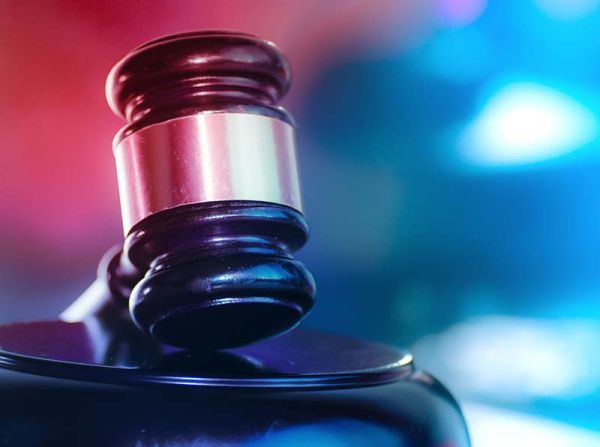Our Criminal Defense Lawyers Explain Double Jeopardy
As President Trump left office, as is the case with many out-going presidents, he issued many pardons to various people convicted of federal crimes. One big name that received a pardon was Paul Manafort, who was convicted in 2018 of eight crimes, including false tax returns, fraud, and failing to disclose foreign accounts. Additionally, he pled guilty in a different case to conspiracy and witness tampering.
However, undeterred by the pardon, Cy Vance, the District Attorney of New York County, wished to prosecute him for crimes related to this same criminal conduct but under New York state law. Can he do this? Is this a violation of double jeopardy?
What does double jeopardy mean?
The Fifth Amendment to the United States Constitution grants various protections, but regarding double jeopardy it states “No person shall…be subject for the same offense to be twice put in jeopardy of life or limb…”
What that means is that when you are charged with a crime, and those charges are adjudicated (finished) they cannot be brought again. Imagine you are charged with Driving While Intoxicated. If you go to trial and are acquitted, you cannot just keep being re-tried because the government did not like the verdict. Similarly, if you agree to plead guilty to a lesser offense, like Driving While Ability Impaired, if a new District Attorney is elected, he or she cannot try to bring the original charge back against you, if, for example, they thought the plea you accepted was too lenient.
There are some “exceptions” to the double jeopardy rule, for example if a case was dismissed but not on the merits, it may be refiled. If a mistrial is declared it may allow for a new trial, and if a trial results in a “hung jury” or a jury that cannot come to a unanimous verdict on one or more charges against you, the case against you may be retried.
How does the protection against double jeopardy work?
Typically, the protection against double jeopardy works in criminal prosecutions.
For example, when OJ Simpson was famously acquitted of two murder counts, California could never bring those charges again, no matter what future evidence was presented. However, he was able to be sued in civil court. While unusual, it is possible, that OJ could have been tried in Federal Court. In most instances, if you have a trial in a State Court, the Federal Government will not pursue the same charges. If you commit a crime under both state and federal law, you could be charged both by the federal government and the state government. In such a circumstance, you could potentially be convicted in both, and receive two separate sentences. While this is rare, the Fifth Amendment would allow such an event to occur.
Is double jeopardy the same in New York?
Mostly, yes. Although the New York legislature passed CPL §40.20. This law says, “A person may not be twice prosecuted for the same offense.” It goes on to state that no one may be “separately prosecuted for two offenses based upon the same act or criminal transaction unless” one of nine circumstances exists. Some of these circumstances include when the state crime has an element the federal crime doesn’t, or if the offense involves the death, injury, or loss to a different victim.
New York also passed CPL §40.51, which has five additional ways that someone who received a reprieve, pardon, or other clemency from the Federal Constitutional may still be prosecuted under New York law.
Generally, this means that New York law prohibits prosecuting someone under state law when they were already prosecuted by the Federal government, even though the Federal constitution would otherwise allow it.
Can New York prosecute Paul Manafort even though he was given a federal pardon?
No. While the Fifth amendment would allow this to occur, New York’s statutory protections against double jeopardy forbid it.
After his pardon, the court he was charged in dismissed his charges based on Criminal Procedure Law §40.20. In October 2020, the Appellate Division – First Department, affirmed that dismissal. People v. Manafort, 187 AD3d 612 (1st Dep’t 2020).
Then, on February 4, 2021, the New York Court of Appeals, the highest court in New York State, denied leave to appeal this decision. When the Court of Appeals denies leave, like when the Supreme Court of the United States does so, that is nonprecedential. In other words, it does not decide or indicate anything, but it does leave in place the decision of the court below – in this case the First Department’s decision to agree that dismissal was required.

